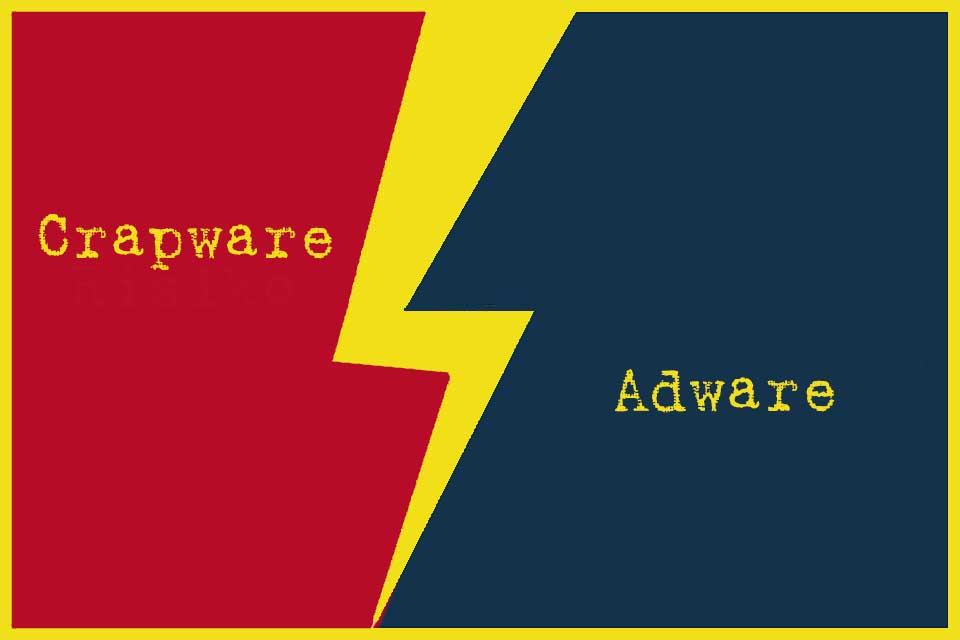What is Adware?
Smartpedia: Adware is a term for a computer program that continuously displays advertisements. Adware = “ADvertising” plus “SoftWARE”.
Advertising is the End, Adware is the Means
Adware is a portmanteau word made up of the words “ADvertising” and “SoftWARE”. But what is the problem with adware, if advertising is nothing unusual nowadays? On TV, movies are interrupted to show commercials. On the Internet, advertising sequences are played before the actually desired videos can start. And before and after each sports broadcast, a corresponding advertising partner is shown. Many consumers have become accustomed to this advertising, even if it is rarely requested by the consumer.
But Adware is different. It does not run somewhere on television or the Internet. It runs on the user’s computer and (almost) without his consent. Adware is a type of software that is designed to display unwanted advertisements on a computer or mobile device. The main problem with adware is that it can negatively impact the user’s experience by interrupting their work, slowing down their computer or device, and potentially exposing them to security risks.
How does Adware Get onto a Computer?
There are two ways that adware gets onto a computer:
- illegal or
- legally.
For example, visiting an infected website can result in an illegal transaction, i.e. an unwarranted installation not authorised by the user. The boundaries to terms such as malware, trojans or browser hijackers are fluid.
Adware usually gets onto a computer unintentionally but legally. Either it is integrated in a freeware or shareware and the user agrees to the installation including all components. Or the user downloads a software from the internet and does not pay attention to small, sometimes very “cleverly” arranged information during the installation and confirms it. And as a result, an advertisement pops up on the user’s display or monitor. If the user clicks this away, the same or an alternative new advertisement appears after a short time. The adware is responsible for this.
The Adware Business Model
Is it worthwhile distributing adware? Only two parties can answer this question:
- the freeware or shareware manufacturers who integrate it to finance their software,
- and the adware manufacturers.
For the freeware or shareware producer, the cooperation can be worthwhile in two ways: On the one hand, they receive revenue per ad click. And on the other hand, he can offer the user a paid version which – at least according to the advertising promise – does not show any further advertising.
Is the business model worthwhile for the adware producer? Surely one could argue that the very existence of the business model alone indicates that the development and distribution of it is worthwhile. But perhaps Henry Ford’s statement is also true: “Half the money I spend on advertising is waste, and the problem is I do not know which half.”
Some publications state that adware in itself does not pose any danger to the computer. But users can easily see it differently, if
- an “infinite” amount of pop-ups appear,
- browser settings are changed,
- online and offline activities (for the purpose of advertising) are tracked down,
- man-in-the-middle attacks could takes place,
- the computer is slowing down or
- more data volume is consumed.
Most users who suddenly receive advertisements on their computer therefore have a simple question: “How can this crap be uninstalled?”.
The Removal of Adware
There are numerous tips on the Internet on how to uninstall adware. There are videos and tutorials for Android or iOS devices, the simple search for “programs and features” in the control panel of a Windows computer is propagated, or anti-virus programs and cleaners are advertised.
Obviously there are many options to uninstall adware. But there is one piece of advice that every user should take to heart: If you want to download free software from the Internet for uninstalling it, you should be careful when downloading. Don’t accidentally install more adware.
You can find a number of good tips at renowned portals such as Chip.de or at providers of professional software such as
Impuls to discuss:
Sometimes adware is also referred to as PUA – “potentially unwanted application” or PUP – “potentially unwanted program”. Both terms are rather unusual, because why should it “only” be potentially unwanted software? Or do you know someone who deliberately installs adware?
Notes:
Adware is not considered malware per se, as the damage to the computer is NOT intended. Nevertheless, there are publications that consider adware to be a portmanteau word for advertising and malware.
Here you will find additional information from our Smartpedia section:



